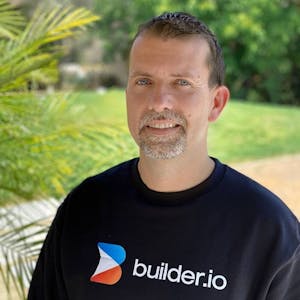So you know, you get into the present, right? This is the full stack spectrum. You're expected to understand operating systems, web frameworks, programming languages, multiple ones, databases, web servers, clients, how clients interface with these backends, you know, JavaScript, CSS, and HTML, and native applications. And you probably, if a company you work at is building consumer products, they have both of these things running in production, talking to backend services constantly, and so you have to understand networking, RPCs, how you write the code to do that. So it gets pretty intense.
And so back to this question on coding challenges becoming obsolete, this is in February. Gaspar is one of my favorite engineers from Vercel, and I had drafted a full stack coding challenge that we ran as part of the interview loop. It's a 90-minute interview, okay? And we give you a problem. You can build a thing on your machine, you can use any tools you want to, and, you know, go to town, build a thing. And Gaspar writes me, he's like, oh, I've done it in two minutes using GPT and coding tools and assistance. The world has changed. And he's right.
Recently this article came out, it was on Hacker News, but it was a guy who interviewed Stack Overflow for the second time, and he was really mad. He got to very well in the interviews, he got to his last interview with Joel Spolsky, which I would love to, although maybe I wouldn't love it, get to my last interview with Joel Spolsky, but he gets to his last interview, and he gets a question, it's kind of like this famous one from Facebook, it's to take a decimal number, convert it to base negative two. And so he wrote on his blog, he's like, okay, this question which is possible and doable in 40 minutes is more really about the problem solving process than anything, but it's the dumbest fucking question I've ever had, and I don't care what anyone else says. So he had a bad experience, he was mad, it's an off by one style question, right? Rounding errors, rig-type precision. So I thought it would be fun to plug this in to Vercel's AI SDK and see what kind of answers we get. Because this is kind of elite code style question. Let's see if it just starts. I think I pushed the button. Okay, look. So this is actually two models side by side, and this is me pushing the question in. So GBT 4.0 and Gemini Flash. All right, this 40-minute question is about to be done in 20 seconds. Pretty amazing. But check this part out. The output from each one is different. GBT is off by an entire power here. So what does that tell you? It tells you that actually, if you don't know that it's off, you might take the code from the first one and move on to the next task. You broke it down, you picked this foundational layer, because now we're going to give longer problems, assuming you might use GBT for this.



























Comments